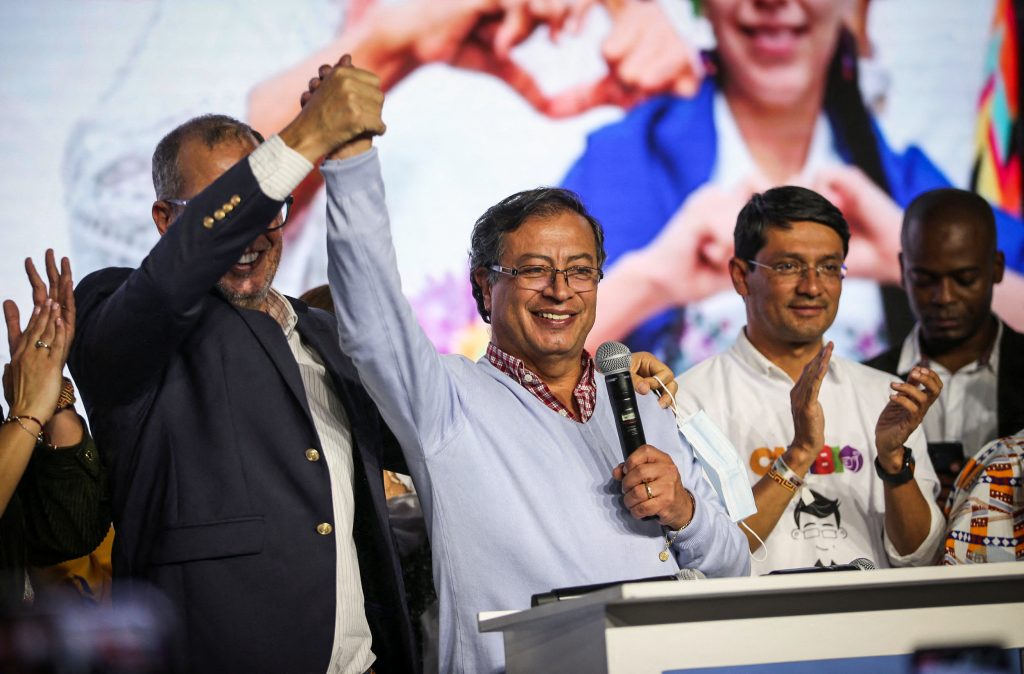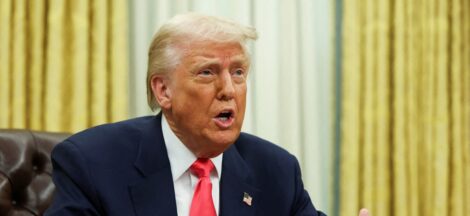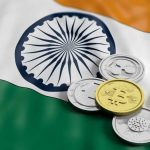By Satyaki Chakraborty
Latin American politics is passing through exciting times in 2022. For the first time, there is a distinct possibility of a left wing candidate Gustavo Petro taking over as the new president of Columbia which is known in South America as the country of drug trafficking and violence. Elections are due on May 29 and the latest poll indications suggest Petro as the front runner much ahead against his conservative right wing rival.
Gustavo Petro, a former leftist guerrilla, has served as mayor of Bogotá and is serving as senator. In 2018, he lost the presidential runoff to Ivan Duque. He won the left’s primary-like interparty consultation in March this year with more votes than any candidate in any of the three competitions. There are seven candidates in the fray. The second positioned candidate as per the opinion polls is Frederico Gutierrez who represents the coalition of conservatives. A civil engineer by training, Gutierrez, was the mayor of Medellin. So far, the third position has gone to ex-governor of Antioquia province Sergio Fajardo who represents the coalition of centrists.
Petro has formed a coalition of the left is of all hues including the Communist Party. He has offered to the Columbian electorate an ambitious package to do away with the decades old injustices made to the ordinary people by the previous ruling establishments. About 40% of Colombians live below the poverty line and the country has one of the world’s largest gaps between rich and poor, according to the World Bank. An opposition senator who is now in his third run for presidency, Petro 62 has spent decades in fighting against the status quo and removing the huge gap in the living standards of the people between rich and poor.
Petro grew up in Zipaquirá, a mining town just north of Bogotá, where he was dismayed by its poverty. But for decades, government repression as well as a power-sharing pact between traditional parties made it extremely difficult for leftists to break into politics. Petro got suffocated in traditional politics and in 1978, he joined the April 19 movement or M – 19 one of several rebel groups of Colombia that were formed taking inspiration from Fidel Castro of Cuba. Columbian journalists say that Gabriel Garcia Marquez in his famous novel ‘One Hundred Years of Solitude’ portrayed the character of a military officer on his image
Petro soon came to believe that the armed struggle would not achieve desired goals. So he focused on electoral politics after forming his political party based on his pro people ideas in 1990.He would soon focus on electoral politics. Disillusioned with the war, Petro took part in peace talks that paved the way for the M-19 to disarm and form a left-wing political party in 1990.
However, running for office remained risky. Carlos Pizarro, who had been the M-19’s top commander, ran for president in 1990 but was shot dead by an anti-communist gunman weeks before the vote. A month earlier, another leftist presidential candidate, Bernardo Jaramillo, was assassinated.
Petro surrounded himself with body guards and made his way into politics. He served nearly two decades in Colombia’s Congress, where he earned praise for denouncing close ties between politicians and right-wing death squads. He finished fourth in the 2010 presidential election, then was elected mayor of the capital, Bogotá, in 2011.
Petro’s election manifesto has alarmed the American multinationals as also the Columbian rich. His programme talks of raising taxes on the rich — and printing money — to pay for anti-poverty programs. To move toward a greener economy, he promises to stop all new oil exploration and to cut back on coal production, even though these are Colombia’s two top exports. Petro has set out a 12 year transition programme according to which the country could replace the lost income from fossil fuels with a major boost to tourism and improvements in agriculture and industry.
Columbia has always been an ally of Washington and the US companies had a field day in exploiting the natural resources of this South American nation. Petro has been careful in his policy towards the USA taking into account the need for assistance in reviving the ailing Colombian economy. He wants to renegotiate the 2006 bilateral trade that has been hurting the Colombian manufacturers and farmers. He has proposed changes to safeguard the interests of his nation. He has expressed his interest in ecology and sought help from the US to protect the Amazon rainforest part of which is in Columbia.
The programme of Petro’s coalition has generated wide enthusiasm in Columbia right now, less than 20 days before the Presidential polls but the path for Petro is not fully smooth.. Although the progressive coalition is the most dominant political force in the country, the center and right-wing parties are now forming their alliance to impede their progress toward the presidency. What happens next depends on Pacto Historico’s ability to mobilize first-time and swing voters and persuade the more popular center parties and leaders to join the coalition, a feat Petro failed at in the 2018 elections.
In the next few days before the May 29 polls, Petro and his comrades have to work relentlessly for wooing the centrists so that the conservative right can not expand their voting support by getting the support of the centrists. Petro has already portrayed himself as a democratic leftist, different from Venezuela’s Maduro. To what extent his coalition can generate the confidence of the middle class in his democratic credential, will determine whether he will finally achieve Presidency of the nation in his third attempt. (IPA Service)


 In A Final Blow, Modi Govt Is Planning 28% GST For Crypto Sector
In A Final Blow, Modi Govt Is Planning 28% GST For Crypto Sector 